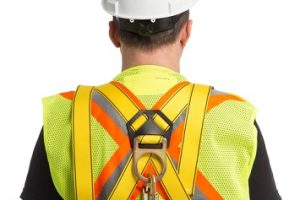Can an employer be cited for committing a willful violation of a worker protection standard even if the employer professed ignorance of the standard?
The answer is “yes” if the employer demonstrated a disregard for the safety of workers that was so reckless that it can be reasonably concluded that the employer would not have cared about their safety even if he or she was aware of the standard.
That’s the conclusion reached by a panel of judges for the U.S. Court of Appeals for the 11th Circuit after hearing arguments in Martin Mechanical Contractors v. Secretary, U.S. Department of Labor. Accordingly, the panel upheld a $49,000 penalty OSHA assessed after it investigated an accident in which a worker fell through the skylight in a roof and later died of his injuries.
No Fall Protection
Martin Mechanical Contractors (Martin) is a Georgia company that performs electrical and plumbing work and installs mechanical equipment. In 2015, Martin assigned a foreman and two workers to install a heating, ventilation, and air-conditioning system atop the metal roof of a warehouse in Athens, Georgia. The installation occurred adjacent to and within 4 feet (ft) of several skylights in the roof, each of which was 15 ft off the ground, a concrete slab. According to the court, the skylights were unguarded, and the employees did not wear fall arrest systems even though the foreman had the equipment on-site in his truck.
On November 30, the crew was using an electric saw to cut an area in the roof near one of the skylights. The foreman warned the workers to be careful of the skylights and then left the roof. Soon thereafter, one worker caught the saw in the metal roofing material, lost his balance, and fell through a skylight to the floor below. He was hospitalized and later died.
Petition Declined
OSHA inspected the site following the accident and cited Martin for a willful violation for failing to protect its employees from falls and proposed the $49,000 penalty. An administrative law judge (ALJ) affirmed the citation, determining that the foreman’s actions demonstrated reckless disregard for the safety of his crew and that such reckless disregard was sufficient to support a finding of a willful violation. The ALJ also rejected Martin’s argument that the foreman’s lack of familiarity with the regulation’s requirements precluded a finding of willfulness. Martin filed a petition with the Occupational Safety and Health Review Commission (OSHRC), which declined to review ALJ’s decision.
Defining Willful
The panel stated that it reviewed OSHRC’s decision using a “highly deferential standard” established in Fluor Daniel v. OSHRC (11th Cir. 2002).
“We consider the ‘substantial evidence’ threshold met if a reasonable person would consider the evidence adequate to support the Commission’s ultimate conclusion,” stated the panel. “The Commission’s finding of willfulness is a finding of fact, while the Commission’s definition and application of the term is an issue of law.”
The panel quotes from Fluor: “[T]he definition of willful in this circuit is, in its simplest form, an intentional disregard of, or plain indifference to, OSHA requirements.”
More specifically, the panel states:
“To establish a willful violation, OSHA must establish either: (1) [that the] employer knew of an applicable standard or provision prohibiting the conduct or condition and consciously disregarded the standard or (2) that, if the employer did not know of an applicable standard or provision’s requirements, it exhibited such reckless disregard for employee safety or the requirements of the law generally that one can infer that … the employer would not have cared that the conduct or conditions violated [the standard].”
Warning Indicated Awareness
Specific to the case, the panel agrees that evidence in the record showed that the foreman was “well aware of the risks posed by working on the warehouse roof but deliberately chose to ignore them.”

“[The] foreman knew that he and his crew would be working on the roof and that the skylights on the roof were dangerous, and even warned his crew members multiple times to stay away from the skylights,” the panel continued. “Notwithstanding his knowledge of the fall hazard posed by the skylights, [the foreman] did nothing to prevent an accidental fall beyond these cursory warnings. He did not instruct anyone to wear fall protection, nor did he provide fall protection equipment to his crew—even though he had the equipment on-site in his truck.”
As the panel sees it, the warning issued by the foreman indicated that he was fully aware of the proximity of the skylights and the associated hazard and yet still failed to require his crew to wear any fall protection equipment. This leads to the conclusion that a finding of willfulness is not negated by the foreman’s lack of familiarity with the fall protection standards required under the regulation.
“In addition, as the ALJ correctly notes [the foreman’s] unfamiliarity serves, if anything, only to underscore the inadequacy of Martin’s training program,” said the panel. “To hold that such inadequacy—and the resulting unfamiliarity—precludes classification of a violation as willful would perversely allow Martin to use its ineffective training as a defense against OSHA’s most serious charge.”
“The [OSHRC’s] classification of the violation as willful, therefore, is upheld,” concluded the panel.
The panel’s opinion is at http://media.ca11.uscourts.gov/opinions/unpub/files/201712643.pdf.

